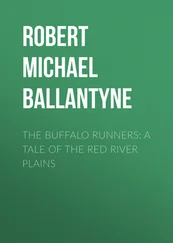Robert Michael Ballantyne - The Lighthouse
Здесь есть возможность читать онлайн «Robert Michael Ballantyne - The Lighthouse» — ознакомительный отрывок электронной книги совершенно бесплатно, а после прочтения отрывка купить полную версию. В некоторых случаях можно слушать аудио, скачать через торрент в формате fb2 и присутствует краткое содержание. Жанр: Детские приключения, literature_19, foreign_antique, foreign_prose, foreign_children, на английском языке. Описание произведения, (предисловие) а так же отзывы посетителей доступны на портале библиотеки ЛибКат.
- Название:The Lighthouse
- Автор:
- Жанр:
- Год:неизвестен
- ISBN:нет данных
- Рейтинг книги:4 / 5. Голосов: 1
-
Избранное:Добавить в избранное
- Отзывы:
-
Ваша оценка:
- 80
- 1
- 2
- 3
- 4
- 5
The Lighthouse: краткое содержание, описание и аннотация
Предлагаем к чтению аннотацию, описание, краткое содержание или предисловие (зависит от того, что написал сам автор книги «The Lighthouse»). Если вы не нашли необходимую информацию о книге — напишите в комментариях, мы постараемся отыскать её.
The Lighthouse — читать онлайн ознакомительный отрывок
Ниже представлен текст книги, разбитый по страницам. Система сохранения места последней прочитанной страницы, позволяет с удобством читать онлайн бесплатно книгу «The Lighthouse», без необходимости каждый раз заново искать на чём Вы остановились. Поставьте закладку, и сможете в любой момент перейти на страницу, на которой закончили чтение.
Интервал:
Закладка:
Getting into the boats, by the way, in a heavy sea, when the lightship was rolling violently, was no easy matter. When the fine weather first broke up, it happened about midnight, and the change commenced with a stiff breeze from the eastward. The sea rose at once, and, long before daybreak, the Pharos was rolling heavily in the swell, and straining violently at the strong cable which held her to her moorings.
About dawn Mr Stevenson came on deck. He could not sleep, because he felt that on his shoulders rested not only the responsibility of carrying this gigantic work to a satisfactory conclusion, but also, to a large extent, the responsibility of watching over and guarding the lives of the people employed in the service.
“Shall we be able to land to-day, Mr Wilson?” he said, accosting the master of the Pharos , who has been already introduced as the landing-master.
“I think so; the barometer has not fallen much; and even although the wind should increase a little, we can effect a landing by the Fair Way, at Hope’s Wharf.”
“Very well, I leave it entirely in your hands; you understand the weather better than I do, but remember that I do not wish my men to run unnecessary or foolish risk.”
It may be as well to mention here that a small but exceedingly strong tramway of iron-grating had been fixed to the Bell Rock at an elevation varying from two to four feet above it, and encircling the site of the building. This tramway or railroad was narrow, not quite three feet in width; and small trucks were fitted to it, so that the heavy stones of the building might be easily run to the exact spot they were to occupy. From this circular rail several branch lines extended to the different creeks where the boats deposited the stones. These lines, although only a few yards in length, were dignified with names—as, Kennedy’s Reach, Logan’s Reach, Watt’s Reach , and Slight’s Reach . The ends of them, where they dipped into the sea, were named Hope’s Wharf, Duff’s Wharf, Rae’s Wharf , etcetera; and these wharves had been fixed on different sides of the rock, so that, whatever wind should blow, there would always be one of them on the lee-side available for the carrying on of the work.
Hope’s Wharf was connected with Port Erskine , a pool about twenty yards long by three or four wide, and communicated with the side of the lighthouse by Watt’s Reach , a distance of about thirty yards.
About eight o’clock that morning the bell rang for breakfast. Such of the men as were not already up began to get out of their berths and hammocks.
To Ruby the scene that followed was very amusing. Hitherto all had been calm and sunshine. The work, although severe while they were engaged, had been of short duration, and the greater part of each day had been afterwards spent in light work, or in amusement. The summons to meals had always been a joyful one, and the appetites of the men were keenly set.
Now, all this was changed. The ruddy faces of the men were become green, blue, yellow, and purple, according to temperament, but few were flesh-coloured or red. When the bell rang there was a universal groan below, and half a dozen ghostlike individuals raised themselves on their elbows and looked up with expressions of the deepest woe at the dim skylight. Most of them speedily fell back again, however, partly owing to a heavy lurch of the vessel, and partly owing to indescribable sensations within.
“Blowin’!” groaned one, as if that single word comprehended the essence of all the miseries that seafaring man is heir to.
“O dear!” sighed another, “why did I ever come here?”
“Och! murder, I’m dyin’, send for the praist an’ me mother!” cried O’Connor, as he fell flat down on his back and pressed both hands tightly over his mouth.
The poor blacksmith lost control over himself at this point and—found partial relief!
The act tended to relieve others. Most of the men were much too miserable to make any remark at all, a few of them had not heart even to groan; but five or six sat up on the edge of their beds, with a weak intention of turning out. They sat there swaying about with the motions of the ship in helpless indecision, until a tremendous roll sent them flying, with unexpected violence, against the starboard bulkheads.
“Come, lads,” cried Ruby, leaping out of his hammock, “there’s nothing like a vigorous jump to put sea-sickness to flight.”
“Humbug!” ejaculated Bremner, who owned a little black dog, which lay at that time on the pillow gazing into his master’s green face, with wondering sympathy.
“Ah, Ruby,” groaned the smith, “it’s all very well for a sea-dog like you that’s used to it, but—”
James Dove stopped short abruptly. It is not necessary to explain the cause of his abrupt silence. Suffice it to say that he did not thereafter attempt to finish that sentence.
“Steward!” roared Joe Dumsby.
“Ay, ay, shipmate, what’s up?” cried the steward, who chanced to pass the door of the men’s sleeping-place, with a large dish of boiled salt pork, at the moment.
“Wot’s up?” echoed Dumsby. “Everythink that ever went into me since I was a hinfant must be ‘up’ by this time. I say, is there any chance of gettin’ on the rock to-day?”
“O yes. I heard the cap’n say it would be quite easy, and they seem to be makin’ ready now, so if any of ’ee want breakfast you’d better turn out.”
This speech acted like a shock of electricity on the wretched men. In a moment every bed was empty, and the place was in a bustle of confusion as they hurriedly threw on their clothes.
Some of them even began to think of the possibility of venturing on a hard biscuit and a cup of tea, but a gust of wind sent the fumes of the salt pork into the cabin at the moment, and the mere idea of food filled them with unutterable loathing.
Presently the bell rang again. This was the signal for the men to muster, the boats being ready alongside. The whole crew at once rushed on deck, some of them thrusting biscuits into their pockets as they passed the steward’s quarters. Not a man was absent on the roll being called. Even the smith crawled on deck, and had spirit enough left to advise Ruby not to forget the bellows; to which Ruby replied by recommending his comrade not to forget the matches.
Then the operation of embarking began.
The sea at the time was running pretty high, with little white flecks of foam tipping the crests of the deep blue waves. The eastern sky was dark and threatening. The black ridges of the Bell Rock were visible only at times in the midst of the sea of foam that surrounded them. Anyone ignorant of their nature would have deemed a landing absolutely impossible.
The Pharos , as we have said, was rolling violently from side to side, insomuch that those who were in the boats had the greatest difficulty in preventing them from being stove in; and getting into these boats had much the appearance of an exceedingly difficult and dangerous feat, which active and reckless men might undertake for a wager.
But custom reconciles one to almost anything. Most of the men had had sufficient experience by that time to embark with comparative ease. Nevertheless, there were a few whose physical conformation was such that they could do nothing neatly.
Poor Forsyth was one of these. Each man had to stand on the edge of the lightship, outside the bulwarks, holding on to a rope, ready to let go and drop into the boat when it rose up and met the vessel’s roll. In order to facilitate the operation a boat went to either side of the ship, so that two men were always in the act of watching for an opportunity to spring. The active men usually got in at the first or second attempt, but others missed frequently, and were of course “chaffed” by their more fortunate comrades.
Читать дальшеИнтервал:
Закладка:
Похожие книги на «The Lighthouse»
Представляем Вашему вниманию похожие книги на «The Lighthouse» списком для выбора. Мы отобрали схожую по названию и смыслу литературу в надежде предоставить читателям больше вариантов отыскать новые, интересные, ещё непрочитанные произведения.
Обсуждение, отзывы о книге «The Lighthouse» и просто собственные мнения читателей. Оставьте ваши комментарии, напишите, что Вы думаете о произведении, его смысле или главных героях. Укажите что конкретно понравилось, а что нет, и почему Вы так считаете.












